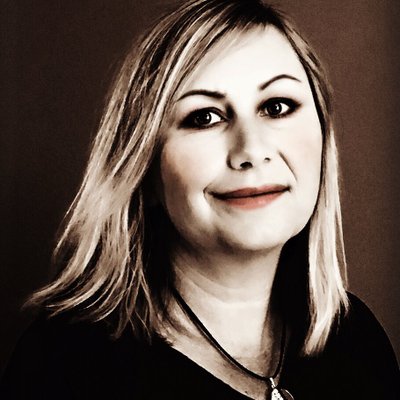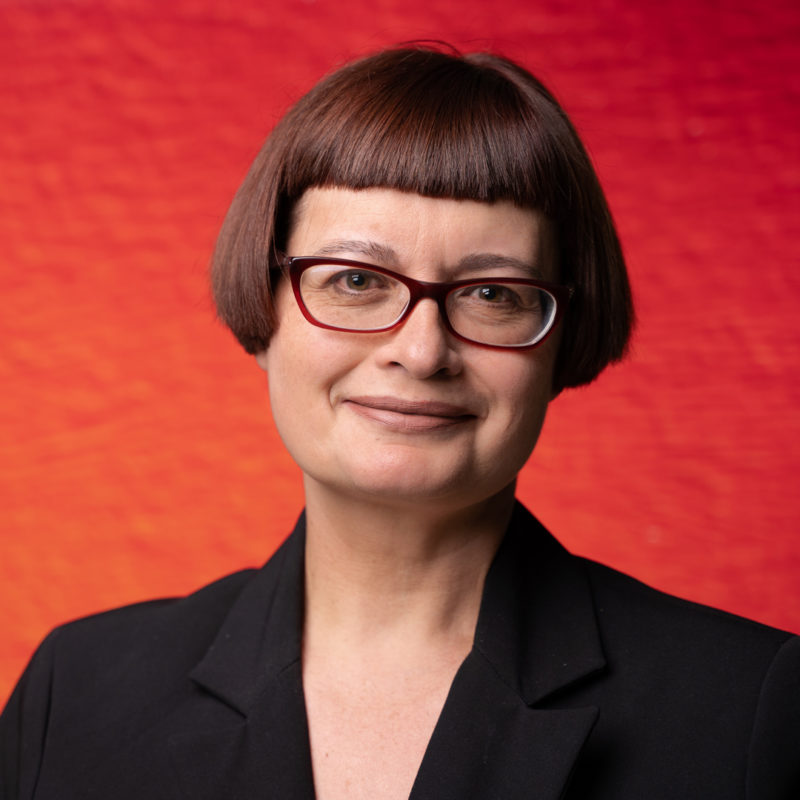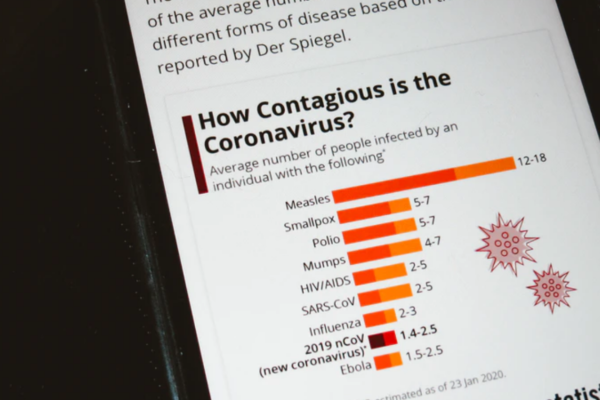[Publishing during a pandemic] Battling misinformation – the rise of science journalism during Covid-19
Written by Piet van Niekerk and Pierre de Villiers. The Covid pandemic has highlighted the value of skilled science writers like never before
The avalanche of scientific data surrounding Covid-19 has seen science journalists thrust from the fringes to the frontline. With the pandemic spreading across the globe at frightening speed, writers have had to quickly distinguish fact from fake news and pass on crucial information to the public in a clear and concise way. It’s been a tumultuous period that’s underlined the importance of well-informed science reporting.
“The pandemic is a wake-up call that expertise in the newsroom still matters,” says Adri Kotze, an experienced freelance editor and writer in London covering Covid across Europe and Africa. “Covid-19 has emphasised that science journalism is as important as political and investigative reporting and should be treated as such.

“Ideally, media organisations should have dedicated health/science journalists or at least assignment editors and copy subs with the relevant experience to guide and fact-check journalists.”
Kotze’s words have been echoed by the scientific community with scientist and writer Matthew Diasio recently telling the University of Virginia’s news website, UVAToday: “As the coronavirus spread, people suddenly needed to learn about disinfectants and ways to reduce risk in everyday activities. Good science writing and other kinds of communication can empower people and communities to make the right decisions.”
And it seems, by and large, communities are appreciating the sterling work done by science journalists, with news outlets seeing a spike in subscriptions and traffic when delivering fact-based Covid coverage. In what is one of the most striking examples, the FT’s Coronavirus Tracker – charting the daily rise in Covid cases and deaths – became the website’s most viewed article of all time earlier this year according to the Press Gazette.
A life and death situation
Science writers have a particularly important role to play as governments start to distribute Covid-19 vaccines. With misinformation and conspiracy theories swirling around the jabs, health journalists can help ease public fears.
“We need to understand vaccine science properly and be able to report on vaccines properly,” says Mia Malan, Editor-in-chief/Executive Director at Bhekisisa Centre for Health Journalism in South Africa – one of the nations hardest hit by the first wave of Covid.

“If we do it wrong, there is this anti-vaxxer environment out there. Vaccines are being fast-tracked and that could also result in a lack of trust. And if there is a lack of trust in vaccines, we really boycott the ability for something to help stop the spread of this virus.”
The uphill battle science reporters face was laid out by Wolfgang Blau, past President International and Chief Operating Officer of Condé Nast and now Visiting Research Fellow at Reuters Institute for the Study of Journalism, during his keynote address at this year’s FIPP World Media Congress.

“Once shared concepts and fundamental societal agreements and reference points such as the trust in science have now become brittle and are being discussed as if they were opinions,” he said. “Until recently the mention of vaccinations as a way to help prevent pandemics would not have caused an emotional reaction because it was established scientific fact. But the politicisation of scientific truths is something that challenges journalists.”
In trying to bring facts to her readers, Kotze has been confronted by a tsunami of misinformation spread across social media.
“Covid-19 has highlighted and exacerbated an existing problem of unscientific nonsense and conspiracy theories which are spread by groups such as the anti-vaxxers, QAnon and troll farms,” she explains. “Another major challenge is that misinformation has become mainstream – news outlets such as Breitbart and channels NewsMax and OneAmericaNetwork (OAN) have been disseminating conspiracy theories and distortion.”
However, when the Covid information being fed into social media channels is accurate, platforms like Twitter can be of great value. For instance, The Atlantic science writer Ed Yong saw one of his stories, offering a roadmap of how the virus could spread in the US, reaching millions when Barack Obama tweeted it.
“Our site’s stats just went nuts,” he told Deseret News, adding that he felt “an intense feeling of purpose”.
“I’m not sure anyone can be ready for a global pandemic,” Yong added. “But I feel ready to do the best job that I can and hope the work makes a difference.”
Learning on the job
Experienced writers aren’t the only ones that have been challenged by Covid. With the pandemic affecting every corner of society, the scientific beat at media organisations has suddenly become very crowded. Almost overnight, all journalists became health journalists and, in the mad scramble to keep up, mistakes were made and misinformation unintentionally spread.
“It’s certainly not easy to send journalists who had been covering politics or crime off to cover a massive health story that relies so heavily on fast-track research and science that we are not that familiar with,” says Malan.
“Because all journalists have been exposed to health journalism and research, they do have a slightly better understanding about how research happens. The downside is that they don’t have a thorough understanding.
“Science is something an average person is not that familiar with so they cannot judge a reporter in the same way as, say, a cricket expert who will be able to figure out if they are saying the right or the wrong thing. The consequence is more severe than in sports reporting and political reporting when you get something wrong. It can result in death.”
According to Kotze, a big drawback for inexperienced scientific writers is not knowing how to identify credible sources and fact-check politicians – sometimes a source of disinformation.
“My experience has been that even journalists with the right intentions have struggled,” she says. “Whereas a political journalist, for example, should try and reflect all views or contrasting views, the emphasis in health journalism should be on responsible reporting. The journalist should know that there is an obligation to not provide a platform for quackery. That requires more research and understanding than everyday reporting.
“The mere fact that someone has a medical background or an impressive title does not make them an expert. An anaesthetist, for example, is not as qualified on certain aspects as an epidemiologist. UK papers such as the Daily Mail have quoted Prof. Karol Sikora, who has also been very vocal on social media on Covid-19. While Sikora is a leading authority in oncology, he is not an epidemiologist. This should at least be clarified.”
A global view
The quality of science reporting around the world during the pandemic has varied greatly. In India, for instance, health reporters have been “visible by their absence” according to Dr. Jaya Shreedhar, Media and Health Consultant, Writer and Medical Doctor at Internews Network.

“We have very few of them, and secondly, the airways are swamped by a lot of ambiguous and substandard information from very important, excellent journalists who work in other domains,” she says.
“There is no way around it apart from revising our view of health journalism – that it’s not a soft issue that has to be left to the women reporters in my country, but very hard issues, a political issue. It’s affecting lives and we have to get an appreciation for all it’s different facets.”
According to Dennis Andre Ballwieser, General Manager, Wort & Bild Verlag, journalists in Germany have improved the way they get their message across after initially struggling in the first few months of the pandemic.

“There was a lot of information and disinformation – not because the journalists didn’t want to do the job the right way but because they had to learn and get used to the tools like reading a study and learning how to interpret a discussion,” he says. “We now have a public who are better informed so it has shifted from a very hectic form of journalism to a journalism that is pretty good and gives people more useful information for their everyday lives.”
Ballweiser believes Germany needs to have a broader view when covering the pandemic, however.
“In Germany we are very inward looking in reporting on every topic,” he says. “We are still driven by male, white Europeans and we still have huge problems getting people into our news organisations with a different background. We need to address this topic, not only in health coverage but especially in health coverage.”
Always be prepared
One of the biggest lessons the pandemic has taught the media, is that the industry has to start preparing for the next big health crisis.
“The next pandemic is just round the corner and we have to cultivate very strong relationships with scientists and with public health officials because there is a shared epistemic responsibility across these agencies,” says Shreedhar.
“I think we have a great opportunity for journalists to develop their skills in science reporting to really explore that universe so we can promote a better scientific thinking in the mind of the public.”
Malan cautions that it won’t be easy to prepare properly for future health crises. “Covid has shown us the enormity of the task and how much there is to do to report well on situations like Covid,” she says.
“There is science knowledge required from all journalists and we should really go and train everyone. We should embrace the opportunity and take this window where more journalists than usual will be open to training.”
Experienced science journalists should also keep on learning, says Kotze.
“Science journalism should be accessible as well as accurate. It includes all aspects of other traditional beats – politics, lifestyle, legal matters and, in the time of social media, even celebrities. Journalists should be able to fact check false claims. Refresher courses would be ideal to keep up with technological tools, and more.
“For me, keeping abreast of the changing science has been the real challenge – and I have found online seminars to be extremely useful. In the event of any future health crises I would get onto science platforms – the time spent is worth it.”








